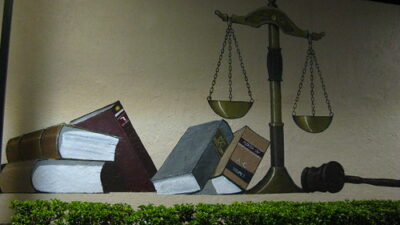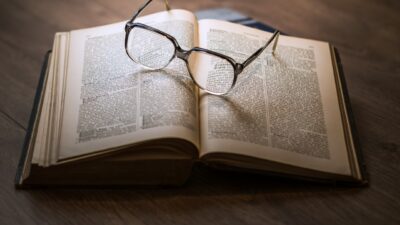Holocaust distortion in the broader context of disinformation and intolerance
Objectives:
- To reflect upon the connection between Holocaust distortion, fake news, hate speech and anti-democratic propaganda
- To develop the participants’ understanding of the significant impact that Holocaust distortion can have on the society
Number of participants: 5–30
Duration: 75 minutes
Description of the activity:
- The trainer informs the participants that in this activity they will reflect upon the connection between Holocaust distortion and other manifestations of intolerance and hate speech, as well as disinformation, fake news, anti-democratic propaganda or populism.1
- The participants are invited to work in four or five groups, in order to discuss the ways in which Holocaust distortion relates to, is influenced by, or contributes to:
- The normalization of fake news
- The spread of hate speech and intolerance on social media
- Populism and anti-democratic propaganda
- Distrust in science and experts
- Each group discusses one of the four topics above. They can also propose a fifth topic related to connecting Holocaust distortion with other forms of disinformation and intolerance that is more relevant to their work. The questions for discussion in each group are the following:
- How do these topics influence one another?
- Who are the people/entities who promote these forms of distortion and intolerance? What motivates them to do it?
- What is being done to combat these forms of distortion and intolerance?
- What else could be done to combat these forms of distortion and intolerance?
- Each group receives access to a padlet or a flipchart where they can write the main aspects of their discussion and then present them briefly in the plenary. The trainer or one of the participants makes a list of the groups’ answers to the questions about what is being done and what could be done to combat these forms of distortion and intolerance. This list will be used in the next activity.
- After the presentations, the trainer conducts a debriefing discussion based on the following questions:
- What are the main ways in which Holocaust distortion relates to other forms of disinformation and intolerance?
- How does the spread of Holocaust distortion affect the progress towards sustainable and inclusive societies?
- Who do you think has a responsibility in countering Holocaust distortion? Why?
- What do you think are your own and your organization’s responsibilities in countering Holocaust distortion?
- The trainer concludes by thanking the participants for their active engagement and by stating that Holocaust distortion has a strong impact on society, both in the specific ways in which it distorts the events of the Holocaust and by contributing to, along with other manifestations, an attack on science and democratic debate:
- Holocaust distortion creates an environment that normalizes or foments hatred, antisemitism and infringement upon human rights.
- The human rights implications of Holocaust distortion are further amplified as the quantity, availability and speed in which false and misleading information can spread have rapidly increased in the digital era, making young people particularly vulnerable.
- Limitations on access to truthful and accurate information about the Holocaust undermines the ability to form an opinion, understand the world, and make choices free from manipulation and propaganda.
- Therefore, we all have a responsibility to contribute to countering it.
1 See UN Special Rapporteur on the promotion and protection of the right to freedom of opinion and expression, “Disinformation and freedom of opinion and expression”, 13 April 2021, UN Doc. A/HRC/47/25.
On this Topic
Lessons for
Topic
Number of participants:
Average Duration of Lesson:

